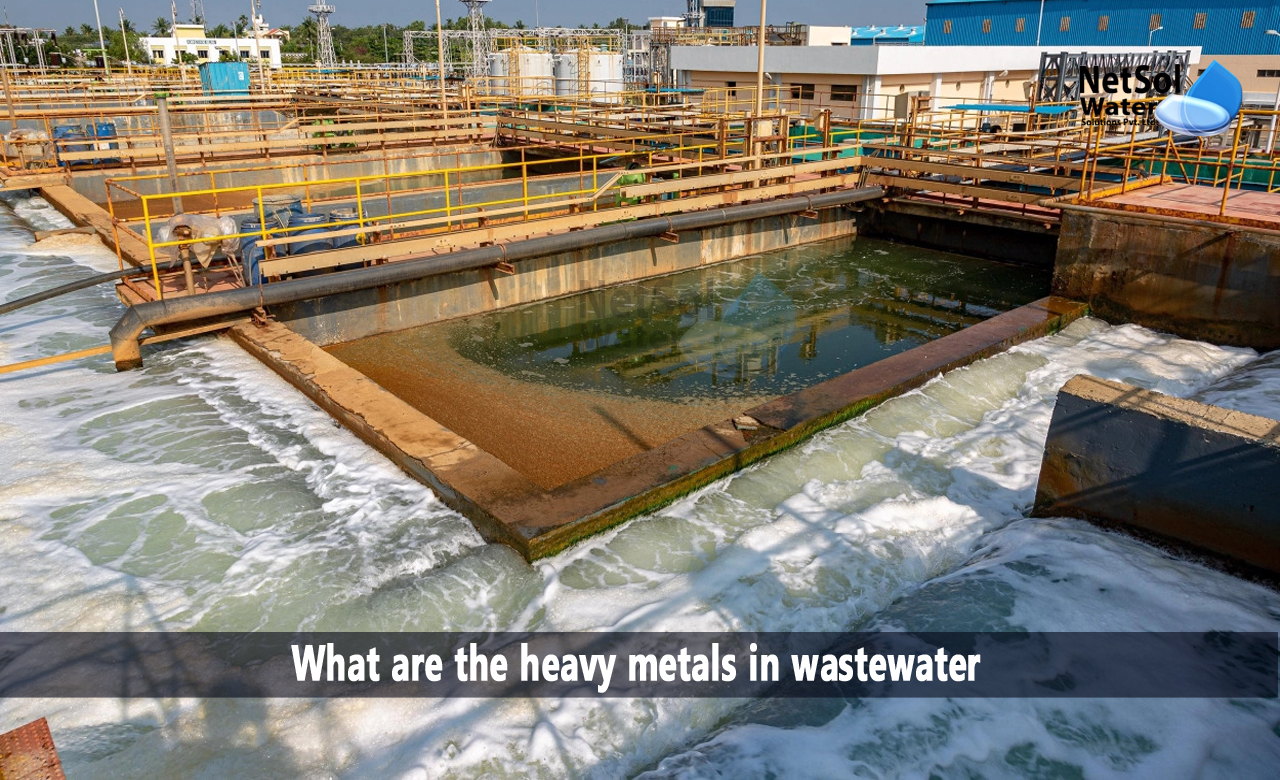What are the heavy metals in wastewater?
Water is incredibly important for all living things, including people, animals, and plants. Despite its significance, it is the second most affordable commodity after air. Perhaps due to its low cost, it is subjected to severe environmental harm from a range of causes, including industrial effluents, agricultural activities, leachates from solid waste landfills, and household garbage. Because of the untreated wastewater discharge, many freshwater reserves are becoming unfit for daily use. Pollutants from these sources, which are exposed to via drinking, cooking, bathing, washing, etc., have a variety of negative impacts on people in particular.
Chemical base elements that naturally occur in nature include heavy metals. Through mining, we can obtain some heavy metals that are then used in industry. Exhaust gases from waste incineration, burning coal, or industrial effluent discharged into the environment, such as from the mining or metal surface treatment industries, are the main sources of heavy metals in the environment.
There are considerable problems with wastewater treatment and heavy metal pollution as a result of industrial activity in many nations, especially emerging ones. When wastewater containing heavy metals including arsenic, cadmium, chromium, copper, lead, nickel, and zinc discharges into rivers and trenches without being properly treated, the outcome is severe pollution, which has an adverse effect on aquatic life, plants, and ecology. Through the food chain, several heavy metals that are naturally stored and difficult to breakdown endanger human health. Complex organic compounds, electric power plants, electronics manufacturing, electroplating, iron and steel, mines, and quarries are some of the sources of industrial effluent containing heavy metals.
Sources of heavy metals in wastewater:
Sources of industrial wastewater containing heavy metals include:
- Electric power plants
- Metal surface treatment
- Electroplating
- Electronics manufacturing
- Organic chemicals manufacturing
- Iron and steel industry
- Mines and quarries
Effects of wastewater containing heavy metals:
· Mercury, lead, and cadmium are the three most prevalent heavy metal contaminants. Exposure to these can have negative consequences on both human health and the environment.
· People of all ages who are exposed to mercury risk damage to their immune systems, kidneys, lungs, heart, and brain. The neurological system can be compromised in infants and early children, which can impair their ability to think and learn.
· Fish that have accumulated mercury risk harming both the fish themselves and the creatures who eat them. Mercury exposure is higher in fish-eating birds and mammals than in other aquatic organisms. Reduced fertility, renal damage, delayed growth and development, altered behavior, and even death are just a few of the effects that wildlife may experience.
· Even at modest exposure levels, lead has negative impacts on a child's neurodevelopment. Heart, kidney, gastrointestinal, haematological, and reproductive problems are among the additional side effects. Most at risk are kids under the age of six.
· Lead is hazardous to plants, animals, and microorganisms in the environment and bioaccumulates in the majority of species. More young fish than adult fish or eggs can become poisoned by lead. Spinal malformation and caudal region blackening are signs of lead toxicity in fish.
· Due to its toxicity to people, cadmium exposure can lead to renal illness, bone thinning, pulmonary inflammation, and even lung, prostate, and kidney cancer. The two biggest possible sources of cadmium exposure for the general public are food and cigarette smoke.
· Plants, animals, and microorganisms are all poisoned by cadmium. Cadmium mostly builds up in the kidney and liver of vertebrates as well as in aquatic invertebrates and algae. On fish, birds, and other animals, acute toxic effects can cause mortality or fetal abnormalities. Plants can be impacted by cadmium, which can cause stunted growth or even death.
Do you need an advice or assistance on selecting the best water and waste water treatment unit? We have solutions for all your problems!
Let us now your problem, our experts will make sure that it goes away.
For an assistance or related query,
Call on +91-965-060-8473
Or write us at enquiry@netsolwater.com



